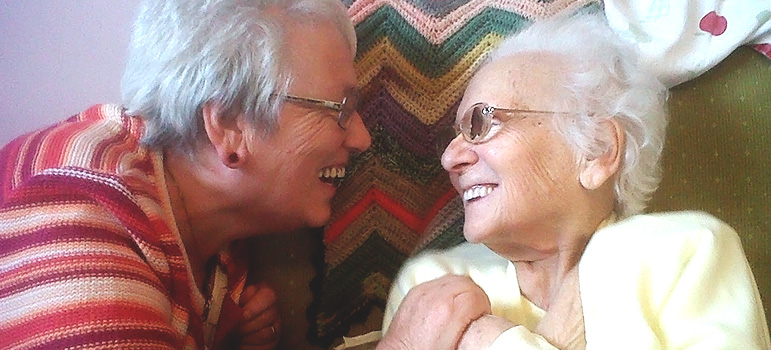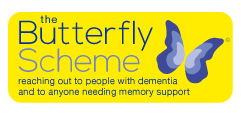Project Description

Over 150 hospitals across the UK have the Butterfly Scheme. If it is available at your local hospital, anyone with memory impairment can access it. Some of those people will have a dementia diagnosis, but many people will simply want to receive memory support during their hospital stay. If someone you care for could do with that support, please ask for the Butterfly Scheme Champion on their ward.
If in doubt, ask the ward clerk for guidance on who to speak to. If there is a problem, please ask the ward clerk to contact the Matron for Elderly Care or the Dementia Lead for the hospital.
You aren’t expected to provide anything yourself in order to access the scheme; please just ask as above when you arrive in the hospital and the hospital team will do the rest. If you already have a carer sheet, please bring it along, otherwise you will be given one to fill in. This will help the staff team to personalise the care they offer. If someone you care for now lives in a care home and you’d like them to access the scheme if hospitalised, please ask the care home manager to contact the scheme via this website and we can make those arrangements.
Being part of the Butterfly Scheme doesn’t imply someone has dementia. Staff at member hospitals will know which patients have a dementia diagnosis and which patients simply need memory support; this is all part of the scheme’s system. If you’ve never discussed these issues before and feel worried, this is a good opportunity to get some support during the time in hospital and perhaps talk about what’s been going on with the memory of the person you care for. All sorts of things can lead to someone’s memory becoming less reliable than usual and the important thing is to get any help you need. It really is worth having that chat; this is an excellent opportunity to do that.
Anyone using the Butterfly Scheme should expect to experience many benefits. Staff approaching the patient should be doing so in a way which reassures, rather than raises anxiety. When working with the patient, the member of staff can be expected to interact with them in a way which allows them to know what to expect throughout the process. The bedside table should be maintained in a way which allow the patient to access key items and function as well as possible in an unfamiliar environment. Staff may well anticipate help and support that the patient doesn’t need at home, but which they find useful in the unfamiliar surroundings and routines of a hospital; they are prepared for these needs and how to support them. There will be an understanding of the difficulties the patient may have in delivering history to the staff team; steps will be taken to ensure that the patient’s answers are given the respect and the attention they should have, whilst ensuring that accuracy is maintained. When advising the patient of any actions required, there should be an awareness of the need to provide suitable support to enable those actions to be carried out.
Further information is contained in the Butterfly Scheme Patient and Carer Guide you will be offered in hospital.
Some families who have experienced excellent care through the Butterfly Scheme wish to support the scheme at their local hospital after the stay. If this is the case, please ask to speak to the Butterfly Scheme Lead at the hospital.
